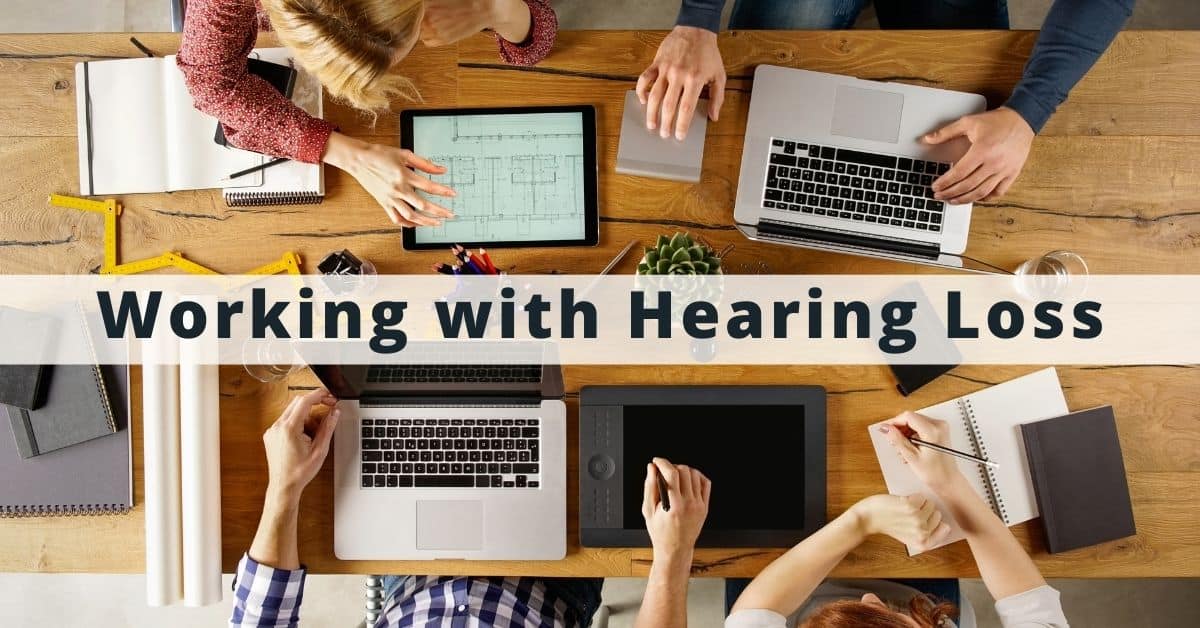For workers with hearing loss, keeping up at work can sometimes feel like a job in itself! While hearing loss will always pose special challenges, today’s workplaces and work-from-home arrangements are becoming more accessible. Digital hearing aids, improved technology and increased awareness are all opening up new options for workers with hearing loss.
Digital Streaming
One of the most groundbreaking advancements in contemporary hearing aid technology has been a new level of digital connectivity. Many hearing aids now feature the ability to stream audio from a smartphone or other connected digital device directly to your hearing aid. Look for hearing aids equipped with wifi or bluetooth options to find the digital streaming option best suited to your needs.
Professionally, digital streaming can help you field calls and video meetings, Zoom conferences and other communication. By streaming digital audio directly to your hearing aid the result is clearer, more focused sound that is quicker and easier to comprehend -making it a great tool for staying in the loop on projects and in conversation. For many with hearing loss, digital streaming and smartphone compatibility make speech comprehension more accessible than in-person listening.
Captioning
Alongside digital streaming, direct captioning technology has also improved in leaps and bounds. Video services like Youtube and Zoom offer automatic captioning that boasts ever-improving accuracy and speed. Sometimes available for live events, captioning is most accurate when applied to recorded events.
If captioning is beneficial to your listening comprehension, look and see how it can be activated (for many Zoom meetings, the meeting will have to be recorded for captioning to occur). Talk to your employer about the best ways to access captioning, and take advantage of it when it is available.
Text, E-Mail and Chat
Having communication written out can make it much easier to comprehend for people with hearing loss. When possible, express an on-the-job preference for communication via email, text or chat. All three methods can be fast and fluent ways to send messages clearly, and can be referred to later. When parsing the details of a project or planning a workflow, working in with written exchanges can have advantages over verbal interaction for the whole team.
Optimize Your Listening
Even with so many areas of the workforce shifting online, many jobs still require in-person verbal communication. Whether you are working with customers or managing a team of builders, knowing how to optimize your listening will help you keep up with the conversation.
Position yourself facing the speaker so what they say can reach you directly without obstacles. When possible, have your back to a wall or other solid surface that can dampen background noises and help you focus. Be aware of noise in your surroundings and move away from any intrusive sounds so they don’t disrupt your focus.
When having a professional discussion, make sure you have clear comprehension of what is being said. You don’t want to be caught later in a situation where you misinterpreted a project or instruction. Ask speakers to repeat themselves if you don’t understand what was said. In cases where listening is too challenging, request written or captioned communication to make sure you understand correctly.
Disclosing Hearing Loss
As per the Americans with Disabilities Act (ADA, for short), you do not have to inform your jobsite or employer about your disability. This set of laws also protects you from discrimination based on your hearing loss.
While there are many reasons not to disclose hearing challenges, if you are comfortable talking about your hearing loss with your employer, it can help you access appropriate accommodations for your hearing. Accommodations for hearing loss can be as simple as having access to seating that allows you to hear better, or it could involve captioning software or other helpful technology. Disclosing hearing loss can also help raise awareness about hearing challenges and make a workplace more accessible for everyone.
Treating Hearing Loss
One of the best ways to stay on top of your professional life is by using hearing aids. Hearing aids greatly mitigate the challenges of hearing loss. Additionally, special features in modern hearing aids can offer you special assistance in professional situations. If you want to learn more about how your hearing aids can help you at work, consult with our team of friendly hearing professionals. We’re alway happy to help you find the best options for your hearing health!

